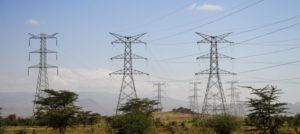
Share
By Lydia Atieno
Through the Ministry of Devolution and Planning, in partnership with the National Youth Service (NYS), the Kenyan government developed an ambitious slum improvement plan. The strategy was to help improve low-income settlements and enhance living conditions.
The project aimed to solve some perennial challenges like poor living standards, high population densities, unemployment, and lack of essential services and infrastructure associated with slums.
To implement the plan, the NYS and local communities mapped five settlements to identify needs and places that require upgrading—these varied from areas where garbage piles were uncollected to blocked drainage.
These maps paved the way for collective clean-ups, the construction of dispensaries, police posts, markets, mills, and urban farming areas. This project resulted in the creation of 42,000 jobs for the youths in Nairobi alone.
In Ngong, the upgrade was carried out through a headcount exercise officially launched last year by the county government of Kajiado headed by the deputy governor Martin Moshisho.
According to the county, Sh90 billion has been set aside by the national government through The world Bank where Kajiado county is among 14 counties in the country that will benefit.
Besides the input from the national government, the Kajiado county government has also set aside funds to upgrade different slums in the region. For instance, the CDIP report estimates that between 2018 and 2022 planned to utilise Sh500 million for slum upgrade initiatives.
Some of the benefits include water, lights, better roads, improved drainage system. Ngong slum Area Association led by their chairman Zipapa initiated the process through a petition to the Kajiado County Assembly.
The headcount exercise is the first step toward achieving a slum upgrade. The responsible land ministry will officially do the headcount.
The county is also earmarked to benefit from an Sh16.2 billion International Development Association Credit from the World Bank for informal urban settlements. The loan is the second phase of the Kenya Informal Settlements Improvement Project (KISIP2).
Image: A past slum upgrade exercise in Nairobi. Source: Wanavijiji
This report has been published by Bus Radio in partnership with Code for Africa, KCOMMNET, the German Cooperation, and the Catholic media council under the #OurCountyOurResponsibility project.


